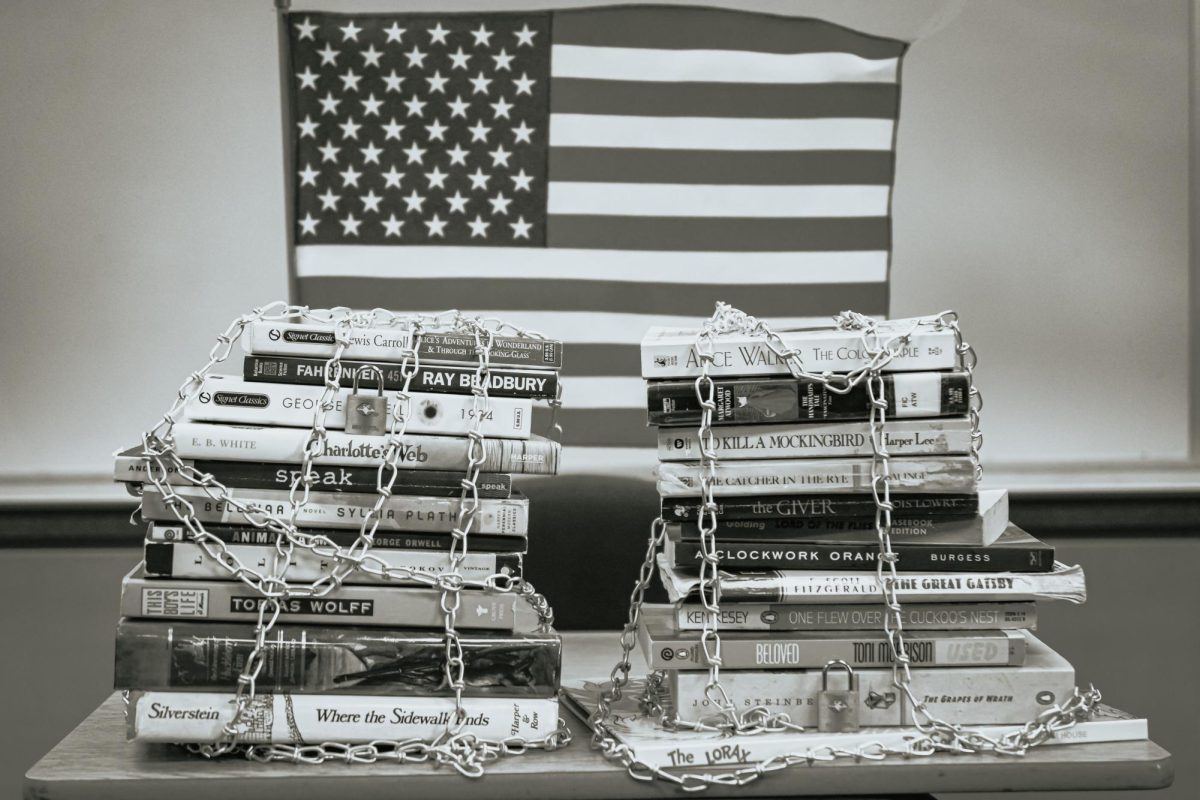As a student in California, I have had the privilege of growing up in an environment where diversity of thought and freedom of expression are encouraged. My educational setting has fostered my ability to think critically, challenge assumptions and appreciate the world from various perspectives. But across the U.S., this freedom is under attack as book bans are becoming more common.
In states like Florida, books such as George Orwell’s “1984” and E.B. White’s “Charlotte’s Web” are being banned under the guise of protecting children from supposedly inappropriate content. While the intention behind the bans may seem reasonable, they are undermining the very foundations of education and the freedom of speech.
Local school boards and lawmakers across the country are increasingly targeting books they deem controversial, citing reasons ranging from concerns about explicit language to political or social content. What began as a small number of contested books has now escalated into a full-fledged movement, with hundreds of books being removed from school libraries and classrooms.
Unfortunately, book bans have grown rapidly, denying students in many states access to the diverse range of perspectives that are essential for developing a well-rounded world view. With each book removed, the intellectual freedom of students is further compromised, and the foundation of the nation’s educational system is increasingly at risk.
According to the American Library Association, such bans have skyrocketed in recent years, a trend that threatens the intellectual development of adolescents. The rise in censorship undermines the very essence of education by limiting the range of perspectives students are exposed to, which hinders their ability to think critically and engage with the world in a meaningful way.
Education is about much more than memorizing facts. When students are exposed to different ideas, they gain the ability to think for themselves and develop their own beliefs. Books are powerful tools in this sense, offering windows into new worlds, different histories and alternative ways of thinking.
As stated by The National Coalition Against Censorship, “Protecting students’ rights to read, inquire and express themselves is critical to educating informed, engaged citizens.” That right is jeopardized when books are being pulled from school shelves. Banning books limits a student’s ability to understand diverse perspectives and engage in civic duties, depriving them of their self-expression, an effect akin to that of propaganda.
One of the most troubling consequences of book bans is the creation of echo chambers, where students are only exposed to ideas that reinforce their existing beliefs. A 2023 study conducted by PEN America found that book bans are increasingly driven by political and ideological beliefs rather than genuine concerns regarding the appropriateness of content, pushing a one-sided narrative. Students are thus discouraged from thinking critically or considering different viewpoints.
In this atmosphere, students may never encounter perspectives that challenge their assumptions and expand their understanding of the world. They become mindless automata, parroting the latest political ideology forced upon them rather than thinking for themselves and exercising their rights.
In 2022, the American Civil Liberties Union issued a warning that “book bans are a direct assault on free speech.” They not only hinder the thinking of readers but also impede the creativity of writers. They stifle the freedom to choose what to read and form opinions based on that reading. Book bans send a clear message that only certain ideas are worthy of discussion while others are deemed unacceptable.
The banning of books is not about protecting children from so-called inappropriate content – they are about limiting access to ideas, repressing critical thinking and restricting freedom of speech. As students, educators and citizens we must stand firm against this growing trend and defend the right to read, think and speak freely. We owe it to ourselves and future generations to safeguard the free exchange of ideas that is at the heart of education.


